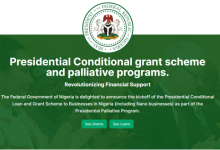Incentivizing Export Growth: A Comprehensive Analysis of Strategies for Nigeria

Nigeria, Africa’s most populous nation, boasts a vibrant economy with immense potential for export growth. However, despite its vast resources and diversified industries, the country’s non-oil exports have struggled to gain a significant foothold in the global market. To address this challenge and harness the full potential of its export sector, Nigeria has implemented a range of incentives aimed at encouraging businesses to expand their international reach. This article delves into the intricacies of these incentives, examining their effectiveness and exploring potential avenues for further enhancement.
Overview of Nigeria’s Export Incentives
Nigeria’s export incentives are primarily administered by the Nigerian Export Promotion Council (NEPC), a government agency tasked with fostering export development. These incentives can be broadly categorized into two main types: financial and non-financial.
Financial Incentives
Financial incentives are designed to provide direct monetary support to exporters, reducing their operating costs and enhancing their competitiveness in the global marketplace. Key financial incentives include:
Export Expansion Grant (EEG): The EEG is a post-shipment incentive that reimburses exporters a portion of their export proceeds. The reimbursement rate varies depending on the product category, with higher rates offered for value-added products.
Export Development Fund (EDF): The EDF provides funding for export-related activities, such as market research, trade fair participation, and export capacity building programs.
Duty Drawback Scheme: This scheme allows exporters to recover duties and taxes paid on imported inputs used in the production of exported goods.
Non-Financial Incentives
Non-financial incentives focus on facilitating trade processes and reducing administrative burdens for exporters. These incentives include:
Free Trade Zones (FTZs): FTZs are designated areas within Nigeria where companies can operate with reduced or eliminated customs duties and taxes, offering a more conducive environment for export-oriented businesses.
Export Processing Zones (EPZs): EPZs are similar to FTZs but specifically designed for manufacturing and processing activities. Companies operating within EPZs enjoy additional incentives, such as exemption from corporate income tax for a specified period.
ECOWAS Trade Liberalization Scheme (ETLS): This scheme grants preferential access to the markets of other ECOWAS member states, reducing or eliminating tariffs on Nigerian exports within the region.
Effectiveness of Nigeria’s Export Incentives
The effectiveness of Nigeria’s export incentives has been a subject of debate. While some argue that the incentives have played a role in supporting export growth, others contend that their impact has been limited.
A 2019 study by the World Bank found that the EEG had a positive impact on non-oil exports, increasing export volumes by an average of 16% for eligible firms. However, the study also noted that the EEG’s effectiveness was constrained by delays in disbursement and inconsistencies in implementation.
Other studies have highlighted the challenges faced by exporters in accessing and utilizing the various incentives. Complex procedures, bureaucratic hurdles, and lack of awareness among potential beneficiaries have been cited as significant obstacles.
Enhancing the Effectiveness of Export Incentives
To fully harness the potential of Nigeria’s export incentives, several improvements can be implemented:
Streamlining Procedures: Simplifying application processes and reducing administrative burdens will make it easier for exporters to access and utilize the incentives.
Promoting Awareness: Enhancing outreach and education campaigns will raise awareness among potential beneficiaries about the available incentives and their eligibility criteria.
Improving Transparency: Enhancing transparency in the administration of incentives will build trust among exporters and encourage greater participation.
Regular Evaluation: Conducting regular evaluations of the effectiveness of incentives will identify areas for improvement and ensure that the incentives remain aligned with the country’s export development goals.
Conclusion
Nigeria’s export incentives have the potential to play a significant role in driving export growth and diversifying the country’s economy. However, to maximize their effectiveness, the government must address the challenges that currently hinder their utilization. By streamlining procedures, promoting awareness, enhancing transparency, and conducting regular evaluations, Nigeria can create an environment where export incentives can effectively support the growth of its non-oil export sector.















